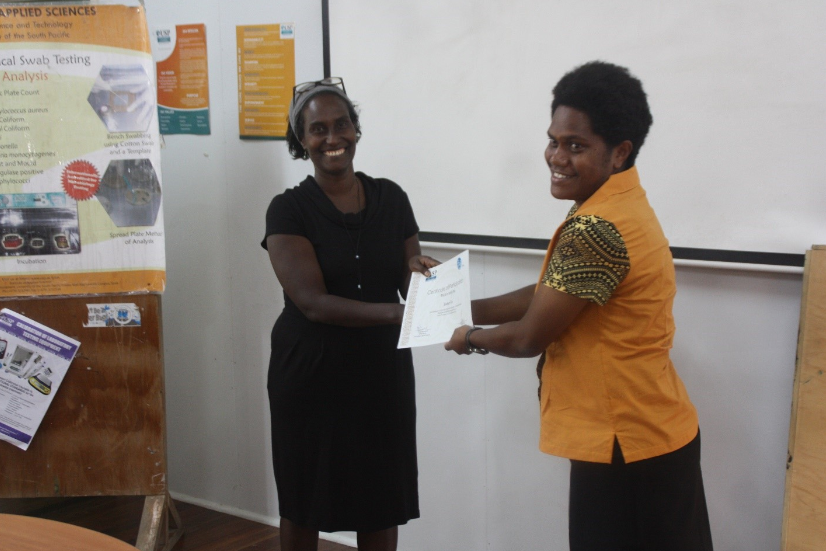IAS Held Sampling and Analytical Testing Training for Regional Health and Fisheries Inspectors and Fish Industries personnel hailed as a success
27 November 2019
A fish and water sampling and testing training for regional health, fisheries inspectors and fish industries representatives was held at the Institute of Applied Sciences, University of the South Pacific in collaboration with the Forum Fisheries Agency from 21 October – 1 November 2019. The training was funded by the New Zealand Government. The focus of the training was on strengthening the proper monitoring of the quality of fresh fish caught and fish products that is exported to the European Union and other markets.

IAS Microbiologists Ms Arun Pande, Ms Anjila Nand Raghuwaiya and Ms Ashika Dayal trained the participants from the Solomon Islands, Kiribati, Papua New Guinea and Fiji. Topics covered during the training included:
- Proper sampling procedures for fish, water and environmental samples;
- Aseptic Techniques in Microbiological analysis; and
- Interpretation of analytical results.
Ms Tereere Tekeraoi of Kiribati said, “the exposure to laboratory analysis and learning how results are determined, greatly supported the need to ensure that the sampling is done properly and correctly.” In other words, the training gave her a better understanding of the importance of aseptic techniques when collecting fish and water samples.

Mr Jope Tamani, the FFA Trade Advisor said “the offering of both theoretical and hands-on training in laboratory analysis techniques and results interpretation has allowed participants to effectively deliver on their fisheries products monitoring skills. Previous participants had also provided positive feedback on how the training has assisted their own career developments.” He also highlighted that this training has been one of the most successful training program that the FFA had organised for regional fisheries personnel over the years. he said.

The Acting Director, IAS, Dr Isoa Korovulavula acknowledged the Fisheries Forum Agency and the New Zealand government for engaging IAS as the provider of this training. He added that IAS would further engage with the collaborators in exploring developing the training further to meet the industrial needs of the region.
